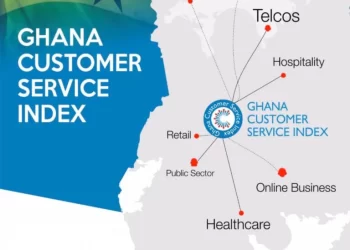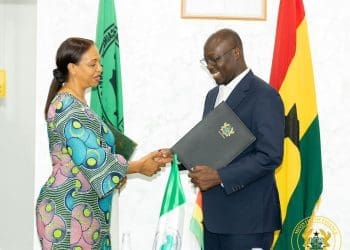Chief Commercial Operations Officer of MobileMoney LTD (MoMo), Abdul Razak Issaka Ali, has called for a redefinition of digital financial inclusion in Ghana and across Africa, arguing that it must go beyond simple payments to encompass wider financial services that empower underserved communities.
Speaking during a high-level panel discussion on the theme “From Exclusion to Inclusion – DPI and Inclusive Development in Africa” at a conference organised by the Media Foundation for West Africa (MFWA) on “Journalism and Digital Public Infrastructure”, Mr. Ali said true financial inclusion should give people not just the ability to pay, but the opportunity to participate meaningfully in the digital economy.
“Digital inclusion must not end at sending and receiving money,” he said.
“It should allow people, especially those in underserved communities, to access credit, insurance, and savings tools that improve their lives and restore financial dignity.”
‘Buy now, pay later’ for the underprivileged
Mr. Ali referenced the concept of embedded finance—the integration of financial services into non-financial platforms—as a critical pathway to empowering the financially excluded.
He explained that such systems allow people to make essential purchases even when they cannot afford them immediately, by enabling flexible payment options.
“A lot of people in underserved communities want to buy things they need but can’t afford at the moment of a transaction,” he observed.
“Payment systems should enable them to buy such items and pay later. That’s how we provide financial dignity — by giving them access when they need it most,” he said
He argued that digital payment systems should evolve to include embedded credit and micro-loan facilities that respond to everyday needs — such as paying for school supplies, healthcare, or farm inputs — without forcing people into cycles of financial exclusion.
The case for broader financial tools
Mr. Ali emphasized that the real impact of digital finance lies in its ability to offer convenience, speed, and empowerment beyond what cash can provide.
He said the transition from cash-based systems to digital platforms is not just about efficiency but about social transformation.
“The ability of the underprivileged to do things that cannot easily be done with cash — to transact conveniently and securely — makes a compelling case for digital finance,” he said.
“It’s not just about money movement; it’s about opportunity movement.”
However, he noted that realizing this vision requires tackling structural barriers, particularly limited access to digital tools such as smartphones.
Smartphones key to true inclusion
One of the key bottlenecks to digital inclusion, Mr. Ali said, is the limited smartphone penetration among low-income earners and rural populations.
While many mobile money services still rely on USSD technology, he described it as increasingly cumbersome compared to app-based systems that support innovation, security, and user-friendly experiences.
“The use of USSD is useful, but it’s limited,” he explained. “The real transformation happens when people can access apps, QR codes, and other digital payment tools that make life easier — but that requires smartphones.”
He urged policymakers, telecom operators, and financial service providers to collaborate in making smartphones more affordable and accessible, possibly through flexible payment schemes or public-private partnerships.
“If we can make smartphones accessible to the underprivileged, then they can enjoy all the benefits that come with digital platforms — faster payments, QR code transactions, network service providers’ apps, and other innovations,” he said. “That’s when inclusion becomes real.”
Towards a holistic digital economy
Mr. Ali’s remarks echoed growing calls across Africa for a holistic approach to financial inclusion, one that combines digital public infrastructure, innovation, and social equity.
He said while Ghana has made commendable progress in building interoperable systems and expanding mobile money adoption, the next phase must focus on empowerment rather than access alone.
“Financial inclusion is not just about having an account or a wallet,” he noted.
“It’s about ensuring that those tools can be used to improve lives — to educate children, to grow small businesses, to access healthcare, and to build dignity.”
While Ghana continues to expand its digital ecosystem, Mr. Ali said Mobile Money Limited remains committed to innovation that aligns with national development goals and bridges the digital divide.
“Our mission is to build systems that include everyone — not just the urban and connected — but the farmer, the trader, and the student in every part of the country,” he said. “Because only then can we say we’ve achieved true inclusion.”














